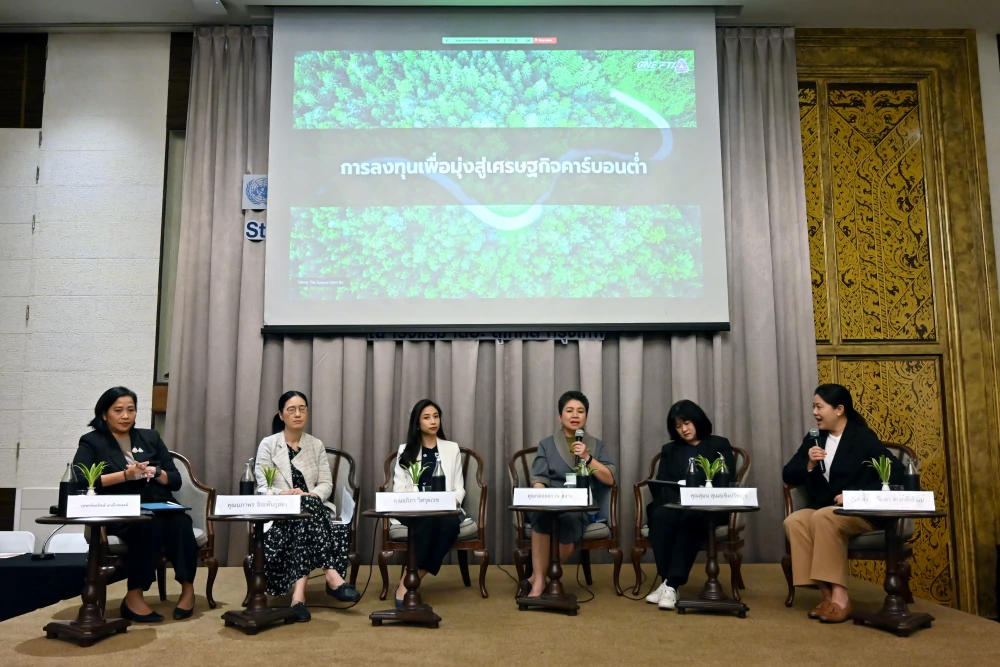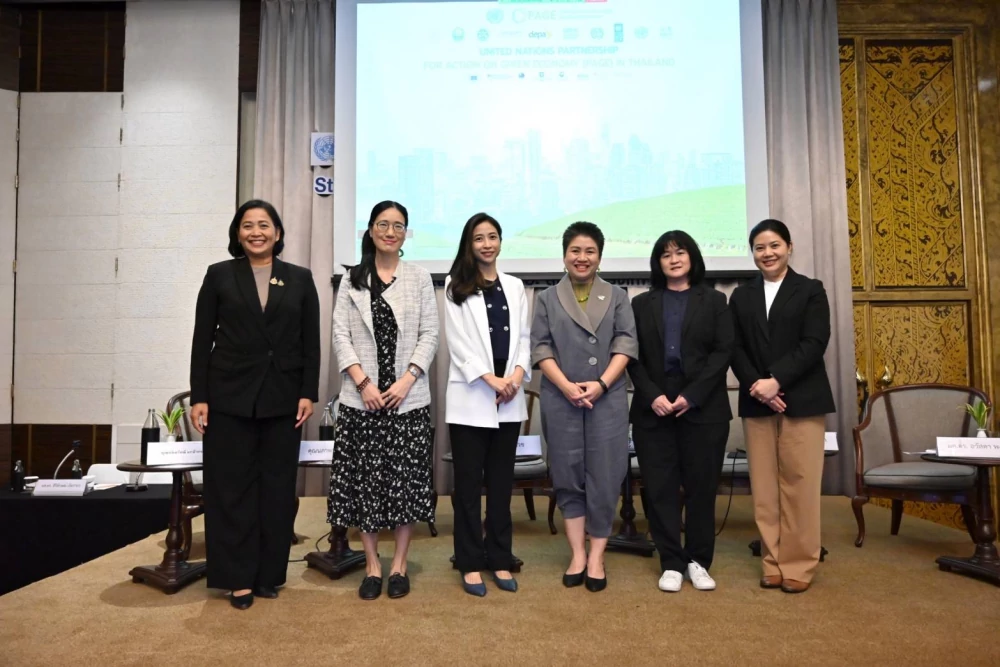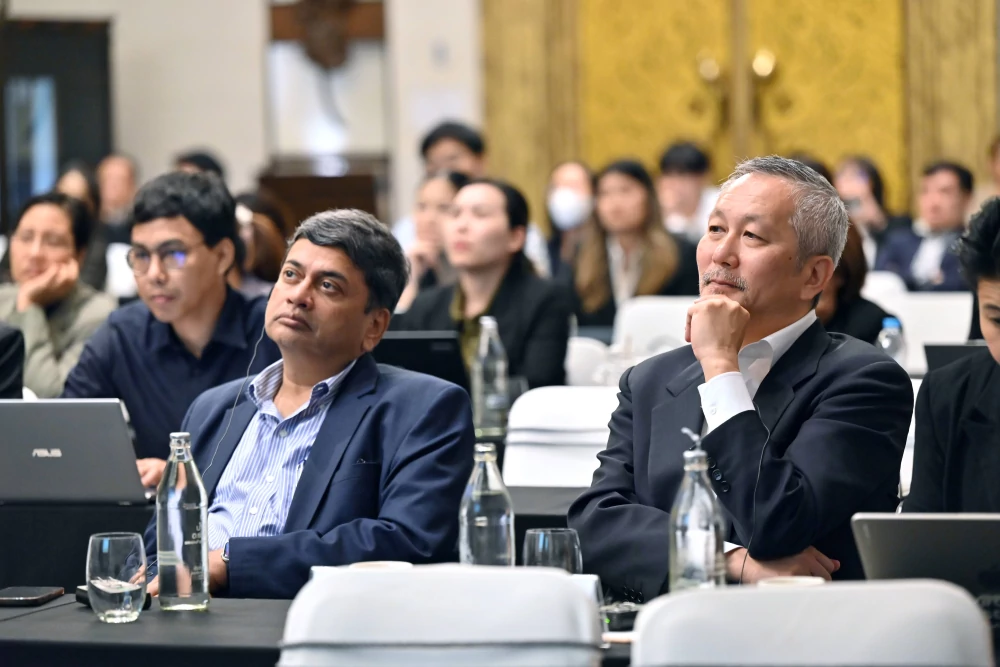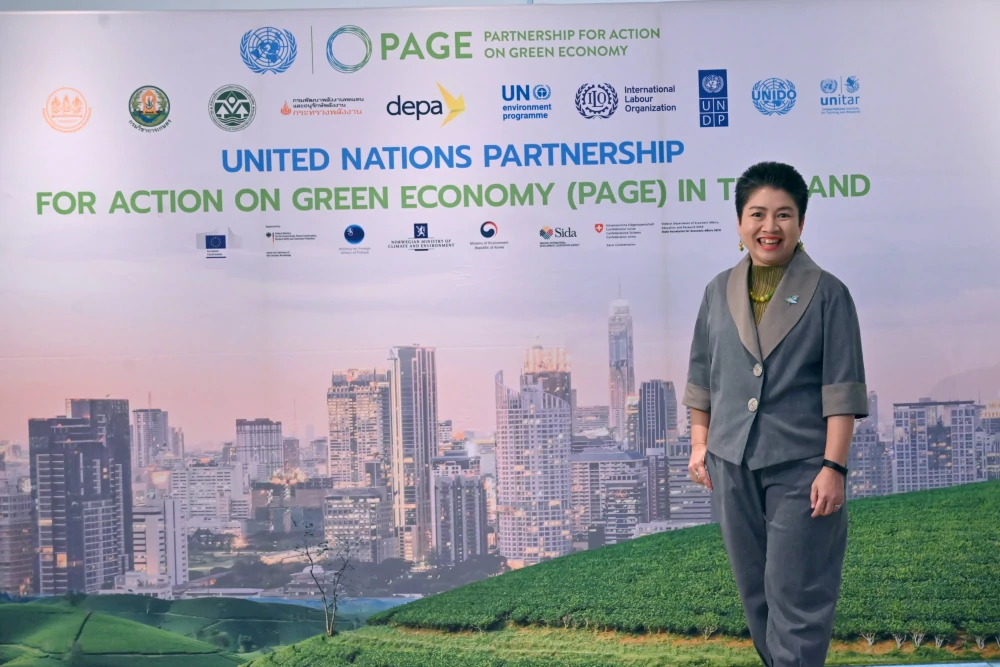05 November 2024
Bangchak Executive Joins Discussion on “The Direction and Potential of the ETS System and Carbon Tax in Thailand”

Mrs. Gloyta Nathalang, Senior Executive Vice President, Sustainability Management and Corporate Communications, Bangchak Corporation Public Company Limited, as a Board Member of the Climate Change Institute, the Federation of Thai Industries (FTI), participated in a panel discussion titled “The Direction and Potential of ETS and Carbon Tax (C-Tax) in Thailand” at the 1st Stakeholder Workshop on the Study of Carbon Emission Trading System (ETS). The panel included representatives from the Department of Climate Change and Environment, Excise Department, Thailand Greenhouse Gas Management Organization, Securities and Exchange Commission, and the Public Relations Department, organized by the King Mongkut’s University of Technology Thonburi at The Sukosol Hotel, Bangkok.
Mrs. Gloyta highlighted the role of FTI in facilitating the Thai industries towards low-carbon technologies through the multidimensional functions of the Climate Change Institute. These include providing policy recommendations and insights to governmental bodies, sharing knowledge, offering consultancy and verification services to the industrial sector, as well as collecting and analyzing data to evaluate trends, and assessing the impacts of various policies and measures. It aims to prepare industries to adapt and function effectively to climate change.
The industrial sector faces challenges in adapting to the ETS and climate change policies, including technological constraints, rising costs, and the need for government support. Mechanisms such as cost reduction through clean energy and efficiency enhancements, tax incentives and government-backed low-interest loans, improved production efficiency and resource management, and carbon credit trading can assist the industry in transitioning to a low-carbon economy.
Mrs. Gloyta cited Bangchak’s investments in advancing a low-carbon economy through the production of sustainable aviation fuel (SAF), which will play a vital role in achieving the Net Zero target. SAF has the capacity to reduce greenhouse gas emissions by up to 80% compared to conventional fossil fuels.





